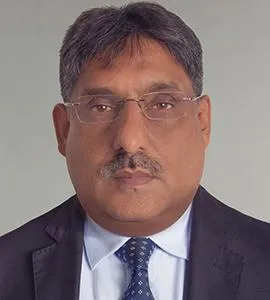
The most successful marriages - the ones that survive job losses, health crises, and economic upheaval - understand one non-negotiable truth: You must enter as equals. Not "equal-ish," says the writer.
Image: Gemini Google
"WHO'LL hire a 37-year-old housewife? Make roti. That's your job."
One sentence. Seven words that have trapped generations of women in gilded cages of dependency. This isn't just cruel - it's catastrophically stupid because the woman who heard these words saved coins in her sari pallu, endured violence in silence, and eventually became the sole provider when her husband's business collapsed.
Her "small" tuition classes - once mocked as rebellion - became the family's lifeline. Her story isn't just inspiring. It's a warning shot across the bow of every marriage built on the archaic model of provider and dependent.
Are you building a life together, or is one person merely existing in the other's shadow, their potential rotting in the kitchen while the world moves on without them?
The most successful marriages - the ones that survive job losses, health crises, and economic upheaval - understand one non-negotiable truth: You must enter as equals. Not "equal-ish." Not "equal in our own ways." Equal. Period.
This isn't some Western import. It's sahadharmini - the ancient ideal of a wife as a partner in all duties, not a subordinate. It's the understanding that 1 + 1 doesn't make 2. It creates a single, unified force that can weather any storm.
For generations, we worshipped at the altar of the male breadwinner. One person works. One person manages the home. Roles clearly defined. Everyone knows their place. And it's a house of cards waiting for the slightest breeze to destroy it.
The Covid-19 pandemic didn't just expose this fragility - it shattered it. Overnight, primary incomes vanished. Businesses failed. Jobs evaporated. And in countless households, it was the "secondary" income - often the woman's part-time work, freelancing, or small business - that kept the family from financial ruin.
Dr. Sonali Desai, a sociologist at the Gokhale Institute of Politics and Economics, puts it bluntly: "The dual-earner family is no longer just an economic unit for upward mobility, but a fundamental safety net. In an era of job and health insecurity, a second income is the family's primary insurance policy."
Think about that. Your family's insurance policy. Not a luxury. Not a nice-to-have. The difference between survival and devastation. Relying on a single income isn't traditional - it's reckless. It assumes perfect health, job security, and economic stability. In 2025, those assumptions are fantasies
Let's be honest about what this belief really costs. It's not just lost income - though that alone should terrify you. It's the systematic suffocation of intellect, ambition, and potential. When you silence half your population, you don't just hurt women. You impoverish your entire community.
"But it's our culture," some protest.
"A woman's sacred duty is in the home. A man's honour is in being the provider."
Here's the uncomfortable truth: a tradition that makes your family financially vulnerable and crushes the potential of its women isn't a tradition worth preserving. It's a chain holding everyone back.
Professor N Neetha of the Centre for Women's Development Studies demolishes this argument with research: "The confinement of women to the domestic sphere is not a sign of prosperity or status; rather, it is a deliberate de-linking of women from economic resources, which reinforces their dependency and diminishes their bargaining power within the household."
Read that again. Dependency isn't protection - it's control. And control isn't love. The husband in our opening story felt "made small" by his wife's independence. But that's not her fault. That's his identity being so fragile, so dependent on dominance, that her success felt like his failure. True strength doesn't require the weakness of others. It multiplies through partnership.
You cannot build a marriage of equals on a foundation of control. Trust isn't just about fidelity. It's about trusting your partner's capabilities, judgement, and ambitions. It's believing that their growth doesn't diminish you - it strengthens your entire family.
The slap that echoed in our opening story? That was fear masquerading as authority. Fear that equality means loss of power. But here's what the research shows: couples who actively support each other's dreams don't just survive - they thrive.
The Gottman Institute's decades of relationship research proves that cultures of appreciation and respect withstand life's greatest stresses. A partnership built on trust creates something transformational: a home where children learn equality by watching it, where ageing parents find sanctuary, where two people face the world as an unstoppable unit. That's not weakness. That's legacy.
This is your call to action. Seeing your spouse as an equal isn't surrendering to "modern values." It's returning to the ancient ideal of sahadharmini and claiming your greatest strategic advantage. When you suppress your partner's potential - through dismissive laughter, through control, through that toxic phrase "my permission" - you're not protecting your family. You're handicapping it.
You think you're strong because you're the sole provider? You're actually vulnerable. One illness. One layoff. One economic downturn. And your entire fortress crumbles because you refused to build a second pillar.
Here's what actual strength looks like:
- Champion her career as fiercely as your own.
- Share the domestic load so she has bandwidth to thrive professionally.
- Celebrate her success as the family victory it is.
- Build two incomes, two skill sets, two networks, two safety nets.
You're not losing authority. You're gaining an unstoppable ally. You're not being diminished. You're being multiplied. The goal isn't just two incomes. It's two fulfilled, capable individuals building a shared vision that neither could achieve alone.
"Sometimes a woman becomes her own rescue."
It's a powerful line. A testament to human resilience and indomitable spirit. But it shouldn't be our aspiration. A marriage should not be a situation from which someone needs rescuing. The real goal is creating a partnership so strong, so rooted in equality and trust, that "rescue" transforms from escape to mutual strengthening. You're not each other's saviours. You're each other's source of power.
Do not enter marriage looking for a dependent or a provider. Enter looking for a co-architect of your future. Plan your finances together. Set your goals as one unit. Build your legacy with the unshakeable belief that two equal pillars create something unbreakable because when the storms come - and they always come - a house built on two equal foundations doesn't crumble. It stands tall.
A testament to what's possible when 1 + 1 truly becomes one unstoppable force. The woman who saved coins in her sari pallu eventually stood on her own feet. But imagine if she'd never had to. Imagine if her husband had been her partner from day one. Imagine what they could have built together. That's not a dream. That's a choice. What will you choose?

Sanjith Hannuman
Image: Supplied
Sanjith Hannuman is the managing director of Avinash Consultants & Actuaries.
** The views expressed do not necessarily reflect the views of IOL or Independent Media.